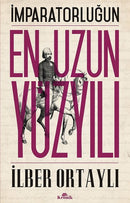Description
“Ottoman modernization is an autocratic modernization, internal and external developments dragged the empire from this autocratic modernization to a constitutional monarchy in the last forty years of its life. The doctors, scientists, lawyers, historians and philologists of the Republic came from the Ottoman intellectual staff of the last period. The republic inherited its education system, university, administrative organization and financial system from the empire at first. Republican revolutionaries set out not with a medieval society, but with a remnant society of the empire that spent its last century in the pains of modernization. One of the factors that spurred the radicalism of the republic was Ottoman modernization, which was not radical enough.
Knowing the strength and weakness of the political-social institutions of today's Turkey is possible by understanding the late Ottoman modernization history well.
The 19th century is the most active, most painful, tiring and long century of the entire Ottoman community; The most important events and institutions that prepare the future form the history of this century.”
-Ilber Ortayli-
Ilber Ortaylı's masterpiece, which deals with the modernization process and political, social and cultural changes in the Ottoman Empire in the 19th century, is in Chronic Book with its revised edition. Translated into many languages such as Arabic, German and Greek, the book deals with the history of the late Ottoman modernization.
Dough Type : 2nd Dough
Size : 13.5 x 21
First Edition Year : 2018
Number of Editions: 1st Edition
---------------
“Osmanlı modernleşmesi otokratik bir modernleşmesidir, iç ve dış gelişmeler, hayatının son kırk yılında imparatorluğu bu otokratik modernleşmeden anayasal bir monarşiye kadar sürükledi, imparatorluk genç Cumhuriyete parlamento, siyasal parti kadroları, basın gibi siyasal kurumları miras bıraktı. Cumhuriyetin tabipleri, fen adamları hukukçu, tarihçi ve filologları son devrin Osmanlı aydın kadrolarından çıktı. Cumhuriyet ilk anda eğitim sistemini, üniversiteyi, yönetim örgütünü, mali sistemini imparatorluktan miras aldı. Cumhuriyet devrimcileri bir orta çağ toplumuyla değil, son asrını modernleşme sancıları ile geçiren imparatorluğun kalıntısı bir toplumla yola çıktılar. Cumhuriyetin radikalizmini kamçılayan öğelerden biri de yeterince radikal olamayan Osmanlı modernleşmesidir.
Bugünkü Türkiye’nin siyasal-sosyal kurumlarındaki sağlamlık ve zaafın bilinmesi, son devir Osmanlı modernleşme tarihini iyi anlamakla mümkündür.
19. yüzyıl bütün Osmanlı camiasının en hareketli, en sancılı, yorucu, uzun bir asrıdır; geleceği hazırlayan en önemli olaylar ve kurumlar bu asrın tarihini oluşturur.”
-İlber Ortaylı-
19. yüzyılda Osmanlı İmparatorluğu'nda modernleşme sürecini, siyasi, toplumsal ve kültürel değişiklikleri ele alan İlber Ortaylı'nın başyapıtı gözden geçirilmiş baskısıyla Kronik Kitap'ta. Arapça, Almanca, Yunanca gibi birçok dile çevrilen kitap son dönem Osmanlı modernleşme tarihini ele alıyor.
Hamur Tipi : 2. Hamur
Ebat : 13,5 x 21
İlk Baskı Yılı : 2018
Baskı Sayısı : 1. Basım
You may also like
Recently viewed
Shipping Map



